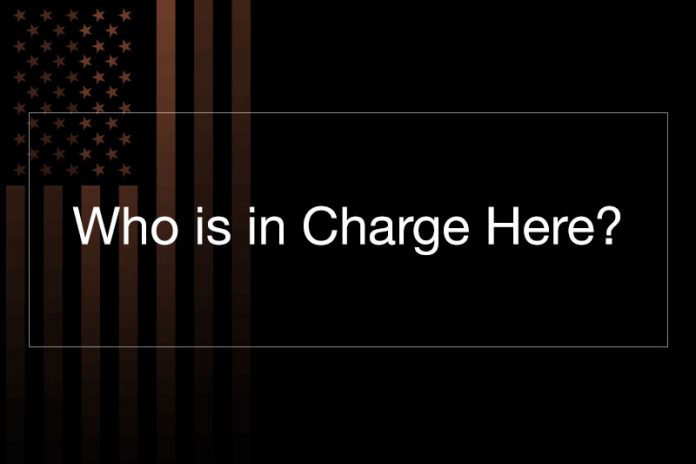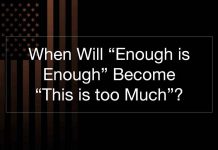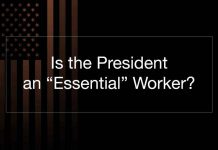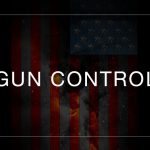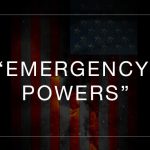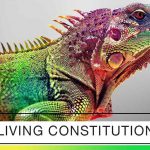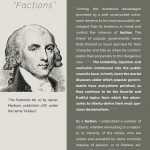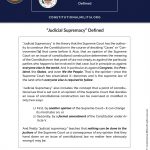Last Updated on October 3, 2021 by Constitutional Militia
The on-going circus of the “Russian collusion” investigation is often described by its detractors as a modern-day “witch hunt” in comparison with which the proceedings in colonial Salem appear as models of social decorum, rational thinking, and due process of law. This, however, is an unjustifiable slur on America’s colonial ancestors. For if one takes seriously the claims of contemporary “Wiccans” and the like, there may very well have been actual “witches” in Salem. In contrast, the various contentions put forward in support of the “Russian collusion” matter in principle, as well as the manner in which the investigation is being conducted in practice, lack even this minimal level of credibility.
Take, for a prime example, the argument asserted by propagandists for “Russian collusion” to the effect that the Department of Justice (DOJ) and the Federal Bureau of Investigation (FBI) are “independent” agencies which can refuse to coöperate with Congress with respect to its requests for production of unredacted public records and other information vital to the performance of its undoubted constitutional power of oversight. These “agencies”, such apologists brazenly contend, are so “independent” that they can even refuse to comply with directives from their immediate constitutional superior, the President of the United States himself. As a constitutional matter, such contentions amount to the acme of legalistic “black magic”, which even the three “Weird Sisters” in the first act of Macbeth would have been proud to conjure. For incantations of “independence” by the DOJ and the FBI invert and subvert the very rule of law which those “agencies” are supposed to uphold within themselves as well as to enforce against malefactors in the general population. After all, as the general law of “agency” provides, “agency” constitutes a fiduciary relationship established by law under which “the principal” (in this case, the President) enjoys a right to control the conduct of his “agents”, and each “agent” labors under a duty to obey the directives of “the principal”. See, e.g, Warren A. Seavey, Handbook of the Law of Agency (St. Paul, Minnesota: West Publishing Co., 1964), § 3. Moreover, the rule of law surely demands responsibility, accountability, and even transparency first and foremost from “law-enforcement agencies”. In that regard, such “agencies” must always be “purer than Caesar’s wife”.
True enough, the three constitutional Branches of the General Government—Congress (Article I), the President (Article II), and the Judiciary (Article III)—are, to a large extent, independent of one another. In particular, this principle applies to the Executive Branch:
The theory of the constitution undoubtedly is, that the great powers of the government are divided into separate departments; and so far as these powers are derived from the constitution, the departments may be regarded as independent of each other. * * *
The executive power is vested in a president; and so far as his powers are derived from the constitution, he is beyond the reach of any other department, except in the mode prescribed by the constitution through the impeaching power.
Footnotes: Kendall v. United States, 37 U.S. (12 Peters) 524, 610 (1838).
The Constitution nowhere provides, however, for any “agencies” (under whatever labels) which are, or can rationally claim to be, “independent” of Congress, the President, and the Judiciary. Plainly enough on the face of the Constitution, Congress enjoys no explicit power to create any such “agency”. Neither does the Constitution invest Congress with any power to render “independent” any of the “agencies” actually enumerated in Article I. Quite the contrary: The “Armies” which the Constitution empowers Congress “[t]o raise and support” and the “Navy” which the Constitution authorizes it “[t]o provide and maintain” are subject to the supreme power of Congress “[t]o make Rules for the Government and Regulation of the land and naval Forces”, typically to be enforced in the final analysis by the President in his capacity as “Commander in Chief of the Army and Navy of the United States”. U.S. Const. art. I, § 8, cls. 12 through 14; and art. II, § 2, cl. 1. Subjection to “Rules” is the very antithesis of “independence”. As to “the Treasury”, the Constitution unequivocally commands that “[n]o Money shall be drawn from [it], but in Consequence of Appropriations made by Law; and a regular Statement and Account of the Receipts and Expenditures of all public Money shall be published from time to time.” U.S. Const. art. I, § 9, cl. 7. Thus no “independence” is to be found here, either. The Constitution also empowers Congress “[t]o establish Post Offices”, albeit without any mention of regulation thereof. U.S. Const. art. I, § 8, cl. 7. Yet no one in his right mind has ever contended, or would be suffered to contend today, that after Congress had once “establish[ed] Post Offices”, those “Offices” and their officials and employees could thereafter do whatsoever they desired in the exercise of some imaginary “independence”. And the Constitution further delegates to Congress the power “[t]o constitute Tribunals inferior to the supreme Court”. U.S. Const. art. I, § 8, cl. 9. But in the creation of these “Tribunals”—which Article III, Section 1 describes as “such inferior Courts as the Congress may from time to time ordain and establish”—Congress is constrained by the specific terms of that Article, which allows for its delegation to those “Tribunals”, and therefore their enjoyment, of only such “independence” as may be appropriate for their limited exercise of what the Constitution calls “[t]he judicial power of the United States”.
The Constitution does delegate to Congress the implied power to create various other unnamed “agencies”, but only such as “shall be necessary and proper for carrying into Execution the [other enumerated] Powers [of Congress], and all other Powers vested by th[e] Constitution in the Government of the United States, or in any Department of Officer thereof”. U.S. Const. art. I, § 8, cl. 18. So, in the particular case of the Executive Branch, Congress may create “agencies” in order to aid the President in the performance of his own constitutional “Powers”. This, of course, is a matter of practical necessity. For the President cannot be required to become the actual day-to-day administrator of every “Department” which Congress creates. “The President’s duty in general requires his superintendence of the administration; yet this duty cannot require of him to become the administrative officer of every department and bureau, and to perform in person the numerous details incident to services which, nevertheless, he is, in a correct sense, by the Constitution and laws required and expected to perform.” Williams v. United States, 42 U.S. (1 Howard) 290, 297 (1843).
On the other hand, Congress cannot misemploy any of its powers to create in the Executive Branch any “agency” through which it so transfers, divides, or qualifies “[t]he executive Power * * * vested in [the] President” pursuant to Article II, Section 1, Clause 1 that no effective “executive Power” remains for the President himself to exercise in those instances, the real power having been ostensibly assigned to others. For, as just noted, “[t]he President’s duty in general requires his superintendence of the administration” at all times—of or from which responsibility neither Congress nor the Judiciary can either deprive or excuse him.
Of all of “[t]he executive Power[s] * * * vested in [the] President” arguably the most important is his power—and absolute duty—to “take Care that the Laws be faithfully executed”, the Constitution itself foremost amongst those “Laws”. U.S. Const. art. II, § 3 and § 1, cl. 7; and art. VI, cl. 2. This power being of constitutional, not merely statutory, provenance, no authority which Congress may purport to assign either (i) to those “Officers of the United States [whom the President himself may appoint], whose Appointments are not otherwise provided for [in the Constitution], and which shall be established by Law”, or (ii) to those “inferior Officers” the “Appointment” of which “Congress may by Law vest * * * in the Heads of Departments”, can detract from the President’s plenary supervisory authority. For, self-evidently, Article II, Section 2, Clause 2 of the Constitution does not contradict Article II, Section 3. Therefore, any “Officers” of whatever rank created by Congress to assist the President in his performance of his duty and power to “take Care that the Laws be faithfully executed” cannot be “independent” of, but must be directly responsible to, him; and that responsibility can neither be negated in the first instance, nor later removed, by Congress. See Marbury v. Madison, 5 U.S. (1 Cranch) 137, 165-166 (1803).
To be sure, the President enjoys the constitutional prerogative to remove any “Officer” whom he appoints, and (“with the Advice and Consent of the Senate”) to appoint a replacement. U.S. Const. art. II, § 2, cl. 2, as construed in Myers v. United States, 272 U.S. 52, 106-107, 109, 122, 126-127, 134-135, 162-163 (1926). That, however, can be a cumbersome, time-consuming process subject to the vicissitudes of political controversy. And the President’s power of removal may not apply, or may be restricted with respect, to certain “inferior Officers” who exercise “quasi-legislative or quasi-judicial powers, or [who act] as an agency of the legislative or judicial departments of the government.” Humphrey’s Executor v. United States, 295 U.S. 602 (1935). “Officers” in the DOJ and the FBI, however, do not exercise “quasi-legislative or quasi-judicial powers, or [act] as an agency of the legislative or judicial departments of the government.”
Now, the power to “take Care that the Laws be faithfully executed” obviously does not license the President himself to forbid, circumvent, or simply disregard the execution of any valid “Law[ ]”. Kendall v. United States, 37 U.S. (12 Peters) 524, 613 (1838) (dictum). That being so, the power to “take Care” undoubtedly authorizes him, not only to remove “inferior Officers” within the Executive Branch who fail in their duties to execute any such “Laws” pursuant to his directions, but also peremptorily to order such “Officers” to execute those “Laws” sine die, and if necessary to compel their obedience to his commands by any and all means available to him, even—and particularly—when the execution of those “Laws” applies to themselves. The Oval Office is where not only President Truman’s proverbial “buck”, but also the insubordination of “Officers” in the Executive Branch, stops.
Thus, with respect to the present “Russian collusion” inquisition, the real issue is not whether President Trump can remove from office Attorney General Sessions (who in any event ought to resign sua sponte on account of his own fecklessness), or Mr. Sessions’ underling Mr. Rosenstein, or Special Counsel Mueller, or any of their collaborators, partisans, and hangers-on. Of the President’s authority in that regard there can be no doubt. The real issue is two-fold: First, why has the President so far seen fit—or been woefully ill advised—not to “take Care that the Laws be faithfully executed” by putting the screws to certain “Officers” who remain ensconced in the DOJ and the FBI even while they refuse to coöperate with Congress as well as the President under color of the specious claim that they are somehow “independent” of both of them? Second, what should he do at this juncture in order to correct this situation?
The nonfeasance and misfeasance of some of these people may be matters of merely the incompetence, sloth, and hubris which are all too typical of entrenched careerist bureaucrats. But the prepensed malfeasance of others manifests their specific intent, not only to assail Mr. Trump personally, but also—especially—to attack the Presidency of the United States as an institution. By attempting to prevent President Trump from “tak[ing] Care that the Laws be faithfully executed” against wayward “Officials” in the DOJ and the FBI (among other swampy backwaters of the Deep State, such as various “intelligence agencies”), these subversives are mounting a cold coup d’état against the Constitution. Mr. Trump himself is merely the ostensible, America’s “Republican Form of Government” the real, target of this political aggression. See U.S. Const. art. IV, § 4.True enough, overt violence has yet to be employed in furtherance of this seditious conspiracy. Contrast, e.g., 18 U.S.C. §§ 2382 and 2385. Yet, for that very reason, most Americans—perhaps including the President himself—remain unaware of the true malignancy of the situation. See generally, e.g., [Link 1], [Link 2], [Link 3] and [Link 4].
So, confronted by this guerrilla insurrection within the primary “law-enforcement agencies” of the Executive Branch, what is President Trump to do?
• First, he must recognize that Congress did not create, and could not have created, the DOJ and the FBI in order to prevent or otherwise hinder him, or any President, from himself “tak[ing] Care that the Laws be faithfully executed”. For that is an institutional duty imposed by the Constitution on the President himself. Those “agencies” (and all others within the Executive Branch) exist solely to assist the President in the fulfillment of this duty to “take Care”—not to prevent, frustrate, delay, or compromise “the execution of the Laws” through their “Officers’” and employees’ incompetence, insouciance, or inadvertence—and surely not to recruit, harbor, and excuse subversive “Officers” and employees intent upon violating “the Laws” under color of “the Laws”.
For those reasons, President Trump cannot be required by any statute or judicial decision to rely blindly and mechanically upon personnel within these “agencies” if, for whatever reason, he believes that they are actively or passively obstructing his compliance with the duty to “take Care”. Because the Constitution itself imposes that duty upon him personally, Congress cannot divest, relieve, or absolve him of it. Neither can Congress tell him how to perform it. For President Trump has taken the constitutional “‘Oath or Affirmation * * * that [he, not Congress,] will faithfully execute the Office of President of the United States, and will to the best of [his, not anyone else’s,] Ability, preserve, protect and defend the Constitution of the United States.’” U.S. Const. art. II, § 1, cl. 7. Nor can the Judiciary cabin, crib, or confine him in the day-to-day fulfillment of his duty to “take Care”. For the performance of that duty in various situations obviously entails a wide swath of discretion. And “[t]he province of the [Supreme C]ourt is * * * not to enquire how the executive, or executive officers, perform duties in which they have a discretion. Questions in their nature political, or which are, by the constitution and laws, submitted to the executive can never be made in th[e Supreme C]ourt” (or in any other court for that matter). Marbury v. Madison, 5 U.S. (1 Cranch) 137, 170 (1803).
• Second, President Trump must realize that, under present conditions, he is dangerously ignorant of “who is who” and “what is what” with respect to the internal machinations of the DOJ and the FBI. He does not know whom to trust—or, perhaps of greater consequence, whom to distrust (other than the hapless Mr. Sessions and a few notorious ringleaders in the anti-Trump camp). Indeed, he does not know whether anyone in those “agencies” can be employed with confidence on his behalf, even circumspectly at arms’ length. For it is apparent that all too many of these “agencies’” personnel operate according to the mafiosi code of omertà, while the few potential “whistleblowers” fear to come forward, apparently because they believe that neither Congress, nor the courts, nor even the President himself can protect them from retaliation by the Deep State.
In this regard, as disturbing as they are illuminating are the recent reports by Kerry Picket, entitled “Sources: FBI Agents Want Congress To Issue Them Subpoenas So They Can Reveal The Bureau’s Dirt” and “Sources: FBI Agents Afraid To Testify, Say Congress Likely Won’t Protect Them” at <dailycaller.com> (22 and 28 May 2018). Apparently, a few honest and patriotic FBI agents want to expose how widespread is the corruption among that “agency’s” middle- and top-level leadership cadres, how that errant leadership is intentionally impeding Congressional investigations, and how that leadership’s systematic politicization of the FBI is obstructing law enforcement and even endangering national security. These agents are reluctant to expose themselves as “whistleblowers”, however, because they fear becoming the targets of political retaliation, personal reprisals, and professional ruination at the hands of their vindictive superiors. Some of these agents say that a subpoena from Congress could possibly fend off attacks against themselves, their families, and their friends by the corrupt higher-ups within the FBI and the DOJ. Others deny even that a Congressional subpoena would afford them sufficient protection. In addition, they all seem to agree that any attempts to enforce in some judicial forum the laws designed to protect “whistleblowers” would offer scant, if any, recourse. But if the situation within the FBI and the DOJ has so deteriorated that both Congress and the Judiciary are effectively powerless to protect these agents, then to whom can they turn for succor? Their only hope is that the one man constitutionally in charge of those “agencies”—the President of the United States—will himself root out the miscreants against whom these agents are willing to testify.
• Third, inasmuch as he cannot depend upon the vast majority of the personnel within the DOJ and the FBI, President Trump must take matters into his own hands, if the non-, mis-, and malfeasance endemic within those “agencies”—and the parties responsible for such wrongdoing—are ever to be exposed and excised.
President Trump’s first step must be to enforce thoroughgoing transparency on the DOJ and the FBI. Both he and the American people whom he represents must be apprised of exactly what is actually going on in the bowels of those bureaucracies.
Recent events have established that, being largely corrupt or willing to countenance corruption, most if not all of the high-level leadership in the DOJ and the FBI will never come clean either of their own volition or at the request of Congress, and surely will never investigate and prosecute themselves or their co-workers through the ordinary course of judicial proceedings. So President Trump must peremptorily command those “agencies” to deliver to him personally sine die all of the documents: (i) which Congress wants to review, as well as (ii) all of the documents to which the latter documents relate in any way, together with (iii) all other documents which he desires to scrutinize for whatever reasons sufficient unto himself—with no redactions whatsoever in any of them. He is empowered to issue such an order on at least three constitutional grounds:
-
- “The President * * * may require the Opinion, in writing, of the principal Officer in each of the executive Departments, upon any Subject relating to the Duties of their respective Offices[.]” U.S. Const. art. II, § 2, cl. 1. The Constitution imposes no exception, limitation, or qualification as to any such “require[ment]”. So, with regard to “principal Officer[s]”, Presidential “require[ments]” in this case would reach both the feckless Mr. Sessions and whoever might be filling his empty suit from time to time in the DOJ, as well as whoever the Director of the FBI might be. And with regard to “Subject[s]”, those “require[ments]” would encompass everything relating, not only to “the old grey mare” of “Russian collusion”, but also to actual violations of the laws (as outlined below), as well as to intimidation of and retaliation against honest personnel in the DOJ and the FBI (as described above). Obviously, too, Mr. Trump could—and should—append to each such “require[ment]” an order for the production of all underlying documents related in any manner to the substance and preparation of each such “Opinion”.
- The President “shall from time to time * * * recommend to the[ ] Consideration [of Congress] such Measures as he shall judge necessary and expedient[.]” U.S. Const. art. II, § 3. Self-evidently, Mr. Trump cannot make any such “recommend[ation]” with respect to cleaning up the present rats’ nest in the DOJ and the FBI without full knowledge of what has been and is now going on within those “agencies”—which, of course, requires complete disclosure to him of the entire pertinent documentary record.
- The President “shall take Care that the Laws be faithfully executed[.]” U.S. Const. art. II, § 3. The “Laws” potentially involved include (but surely are not limited to): (i) violations of their oaths of office by “Officials” and employees of the United States, under Article VI, Clause 3 of the Constitution and 5 U.S.C. § 3331; (ii) such “Officials’” and employees’ participation in improper actions designed to influence the election of the President of the United States (that is, Mr. Trump), under 18 U.S.C. § 595; (iii) “interfering with or affecting the result of [that] election” on the part of such “Officials” and employees, under 5 U.S.C. §§ 7323(a)(1) and 7326; (iv) denial by such “Officials” and employees of the full benefit of Mr. Trump’s constitutional and other civil rights to win election as President of the United States and thereafter to execute that office to its full constitutional degree, under 18 U.S.C. §§ 241 and 242; (v) attempts on the part of such “Officials” and employees to defraud the United States out of the American people’s and the States’ choice of the President of the United States by popular and electoral vote, both before and after the election, under 18 U.S.C. § 371; (vi) attempts by such “Officials” and employees to overturn the duly-elected Government of the United States in the persons of Mr. Trump as the President of the United States and of those whom he has chosen to work in his Administration, through the perpetrators’ creation and operation of an ad hoc “organization” set up as an “insurance policy” for that criminal purpose, under 5 U.S.C. § 7311 and 18 U.S.C. § 1918; (vii) numerous false statements made by such “Officials” and employees to other “Officials” of the United States, under 18 U.S.C. § 1001; (vii) obstruction of proceedings in Congress or any Department or “agency” of the Government of the United States by such “Officials” or employees, under 18 U.S.C. § 1505; (viii) retaliation by such “Officials” or employees against individuals willing to provide truthful information to law-enforcement officers, under 18 U.S.C. §§ 1512(b) and (d), and 1513(e) and (f); and possibly even (ix) such “Officials’” and employees’ complicity in the demise of one or more individuals who may have possessed intimate knowledge of what has been going on, under 18 U.S.C. § 1512(a)(1)(C) and (3)(A).
Once these documents have been produced, President Trump himself will determine what shall be disclosed to Congress and the American people directly, and then to the Judiciary through the normal processes of criminal investigation, indictment, and prosecution. Presumably, this disclosure will encompass most if not all of the documents.
President Trump can anticipate, of course, that the “Officials” and employees whose wrongdoing these documents will expose will attempt (as they have already attempted) to interpose bogus claims of “national security” in order to stifle disclosure. Such a “national-security” dodge would be unavailing, for at least three reasons:
-
- “The privilege [to withhold information on the grounds of ‘national security’] belongs to the Government and must be asserted by it; it can n[ot ] be claimed * * * by a private party.” United States v. Reynolds, 345 U.S. 1, 7 (1953) (footnotes omitted). Because in the course of their illicit activities wrongdoers within the Government are not acting in the capacity of “the Government”, they cannot assert that “privilege” on its (let alone on their own) behalf. Indeed, any attempt on their part to do so should constitute further proof of their wrongdoing, and be treated as such by the President, as well as by Congress and the Judiciary.
- In any event, the privilege of “national security” “is not to be lightly invoked. There must be a formal claim of privilege, lodged by the head of the department which has control over the matter, after actual personal consideration by that officer.” United States v. Reynolds, 345 U.S. 1, 7-8 (1953) (footnote omitted). Constitutionally speaking, with respect to the DOJ the President himself is “the head of the department which has control over the matter”; and therefore he himself can and should determine whether “national security” is truly involved “after [his own] actual personal consideration” of the information the documents contain. Self-evidently, “national security” can never be a plausible ground for suppression of disclosure of systematic wrongdoing within the DOJ and the FBI. Quite the opposite. Complete exposure and ultimate eradication of the cold coup d’état now festering behind the scenes in those “agencies” is a matter of “national security” in the very highest degree.
- To be sure, some of the documentary record which the President will obtain may contain material which some bureaucratic underlings have labeled “classified”. The President, however, is empowered to declassify whatever theretofore “classified” documents he deems should be disclosed to Congress, to the Judiciary, and especially to the American people. The President, after all, is the “‘Commander in Chief of the Army and Navy of the United States.’ U.S. Const., Art. II, § 2. His authority to classify and control access to information bearing on national security * * * flows primarily from this constitutional investment of power in the President and exists quite apart from any explicit congressional grant.” Department of the Navy v. Egan, 484 U.S. 518, 527 (1988). And, being of constitutional provenance, the President’s power to classify and control access to information bearing on “national security”—including the power to declassify and provide the general public with “access to [such] information”—is beyond Congressional or Judicial control, let alone interdiction by the very persons whose actions endanger “national security”.
Nonetheless, the practical problem remains: How can President Trump ensure that all of the documentary record will be produced, when he can trust next to no one in the upper reaches of the DOJ and the FBI to whom he will direct his initial demands for disclosure? If he commands the malefactors to produce documents which incriminate them, some may brazenly refuse, resign their positions in the Government of the United States, and then shelter behind the Fifth Amendment (as is their constitutional right to do). That will be all to the good—for it will expose those malefactors, remove them sua sponte from the Government they are betraying, and (one hopes) bring them before a Grand Jury where they belong. Yet other unconfessed wrongdoers will remain in public office to persist in their clandestine program of opposition and subversion. And the very fact that the situation within the DOJ and the FBI has devolved into the present sordid mess indicates that the extent of incompetence and insouciance among even ostensibly honest “Officials” and employees of those “agencies” is so great that little can be expected of them, either.
To defeat continued intentional or inadvertent obstruction of justice by these people will not require the appointment of some “special counsel” who might himself turn out to be unequal to the task or (worse yet) a secret partisan of or apologist for the criminal cabal. The present regulations provide that:
The Attorney General, or in cases in which the Attorney General is recused, the Acting Attorney General, will appoint a Special Counsel when he or she determines that criminal investigation of a person or matter is warranted and—
(a) That investigation or prosecution of that person or matter by a United States Attorney’s Office or litigating Division of the Department of Justice would present a conflict of interest for the Department or other extraordinary circumstances; and
(b) That under the circumstances, it would be in the public interest to appoint an outside Special Counsel to assume responsibility for the matter.
Footnotes: 28 C.F.R. 600.1.
As on-going events in the “Russian collusion” inquisition have demonstrated, though, employment of a “special counsel” under the auspices of the DOJ to oversee disclosure of documents which would potentially incriminate the upper-level leadership of that “agency” and of the FBI would itself raise numerous, more than likely insuperable, “conflicts of interest”.
Whether predicated on the particulars of some statute or on the generalities of “legal ethics”, no claim of some supposed “conflict of interest” can impose any limitation on the President’s constitutional duty and power to “take Care that the Laws be faithfully executed”. See U.S. Const. art. II, § 3. Moreover, it must be presumed that, in the execution of his “Oath or Affirmation * * * ‘faithfully [to] execute the Office of President of the United States, and * * * to the best of [his] Ability, preserve, protect and defend the Constitution of the United States’”, Mr. Trump would not be diverted from the constitutionally proper course by any supposed “conflict of interest” in that (or any other) regard. See U.S. Const. art. II, § 1, cl. 7. Plainly enough, no conceivable “conflict of interest” could exist in principle between the President’s duty to “take Care” and his discovery and disclosure of documents which would incriminate wrongdoers within the Executive Branch of the Government of the United States. Indeed, in practical fulfillment of his “Oath or Affirmation” in his capacity as President, absent a claim of privilege under the Fifth Amendment he would have to disclose even whatever in those documents tended to incriminate himself in his personal capacity! And if some arguably serious “conflict of interest” involving Mr. Trump could be made out, it would behoove Congress to consider exercising its exclusive authority to “remove[ him] from Office on Impeachment for, and Conviction of, * * * high Crimes and Misdemeanors”. U.S. Const. art. II, § 4.
Yet the effort required to get to the bottom of the sump of corruption within the DOJ and the FBI will be too great for any one man to expend. President Trump will need all the help he can muster. Sufficient help is at hand, though. As long as the cold coup d’état in the District of Columbia continues unabated, the President will find it increasingly difficult to enforce the laws of the United States, not only in that benighted enclave, but also in every State throughout this country. Fortunately, Congress long ago provided a means, perhaps not directed in so many words at such a coup d’état, but surely capable of thwarting its effects:
Whenever the President considers that unlawful obstructions, combinations, or assemblages * * * make it impractical to enforce the laws of the United States in any State by the ordinary course of judicial proceedings, he may call into Federal service such of the militia of any State * * * as he considers necessary to enforce those laws * * * .
Footnotes: 10 U.S.C. § 252.
The complaints of potential “whistleblowers” in the FBI that “the ordinary course of judicial proceedings” even in the courts of the United States will not protect them against retaliation from “combinations[ ] or assemblages” of miscreants at the highest levels of the FBI and the DOJ (described above) establish a sufficient predicate for the President to invoke this authority in order to deal with the cold coup d’état.
Because this statute does not limit the President with respect to “such of the militia” as he may employ for these purposes, “he may call into Federal service” whatever personnel he “considers necessary” from “the unorganized militia, which consists of the members of the militia who are not members of the National Guard or the Naval Militia”. 10 U.S.C. § 246(b)(2). These individuals include “all [such] able-bodied males at least 17 years of age and [with certain exceptions not relevant here] under 45 years of age who are, or who have made a declaration of intention to become, citizens of the United States”. 10 U.S.C. § 246(a). This “class[ ] of the militia” undoubtedly contains sufficient attorneys and other personnel with “law-enforcement” training and experience who could ably assist the President in conducting pervasive discovery of documents against the DOJ and the FBI, in analyzing the documents so obtained, in determining which of those documents should be released to Congress, the courts, and the general public, and thereby in finally making it “[ ]practical to enforce the laws of the United States in [every] State” within this country.
Obviously, the wrongdoers in those “agencies” would have no legal or moral standing to object. Congress should welcome the President’s action, inasmuch as it has invested him with this authority pursuant to its constitutional power “[t]o provide for calling forth the Militia to execute the Laws of the Union”, and surely desires violations of “th[os]e Laws” in the DOJ and the FBI to be thoroughly exposed and punished as soon as possible. See U.S. Const. art. I, § 8, cl. 15. And (perhaps of greatest consequence) rogue members of the Judiciary would be powerless to interfere.
Beyond doubt, no “judicial power to assume continuing regulatory jurisdiction over the activities of the * * * National Guard” exists; for “[i]t would be difficult to think of a clearer example of the type of governmental action that was intended by the Constitution to be left to the political branches directly responsible—as the Judicial Branch is not—to the electoral process.” Gilligan v. Morgan, 413 U.S. 1, 5, 10 (1973). Accord, Orloff v. Willoughby, 345 U.S. 83, 94 (1953) (no judicial authority “to revise duty orders as to one lawfully in the [regular Army]”). Under Gilligan, this rule applies explicitly to the National Guard. But both “the organized militia” (the National Guard and the Naval Militia) and “the unorganized militia” (everyone else eligible for “the militia”) are components of what the relevant statute calls “the militia of the United States”. 10 U.S.C. § 246(a). This statute makes no differentiation between “the organized militia” and “the unorganized militia” as to that status. And the statute which empowers the President to “call into Federal service such of the militia of any State * * * as he considers necessary to enforce th[e] laws [of the United States]” makes no differentiation between “the organized militia” and “the unorganized militia” either. See 10 U.S.C. § 252. (Typically, too, the States’ statutes which define within their jurisdictions what the Constitution calls “the Militia of the several States” follow the Congressional pattern of providing for both “the organized militia” and “the unorganized militia”, and for “calling forth the Militia” in whatever “Part of them” and to whatever degree Congress or the States may deem necessary. Compare U.S. Const. art. II, § 2, cl. 1 and art. I, § 8, cls. 15 and 16 with, e.g., Code of Virginia §§ 44-1, 44-2, 44-3, 44-4, 44-80. 44-81, 44-86, 44-87, 44-89, and 44-90.)
In numerous previous commentaries, I have addressed this subject in detail. See “How the President Can Secure the Borders” (18 August 2015), “Donald Trump and the Militia” (20 February 2016), “9-11 and the Militia” (14 September 2016), “Why the Militia” (18 November 2016), “Trump on Law Enforcement” (23 February 2017), “The Boyars” (20 March 2017), and “Militia and Gun-Free Schools” (19 March 2018). So no more need be added here. All that remains, then, is for President Trump to take this counsel to heart and marshal a group of advisors who will put it into operation.
Unfortunately, what appears to be President Trump’s present strategy of playing for time while “tweeting” for effect is running out of time with no discernible effect. And it is childish for him to assume that what has proven less than useful in the past will somehow become useful in the future. Further delay in adopting the strategy outlined here can only play into the hands of the President’s—and this country’s—implacable enemies. To deal effectively with extraordinary situations requires extraordinary measures to be taken—and extraordinary men to take them. Whether Mr. Trump will measure up remains to be seen.
©2018 Edwin Vieira, Jr. – All Rights Reserved.




























